MOSSEL BAY NEWS - It was a day filled with sharing important information, learning and putting what was learnt into practice at the Stranded Marine Animal Rescue Team’s (Smart) workshop at the Fork and Train Restaurant on Santos Beach last Saturday, 2 August.
New and old Smart volunteers were in attendance, along with some members of the National Sea Rescue Institute’s (NSRI) Mossel Bay station, personnel of both the George and Mossel Bay branches of the Garden Route SPCA and representatives of the state vet, Ocean’s Research and Mossel Bay Tourism.
The workshop started with a welcome from Smart, followed by a presentation by Dr Greg Hofmeyr, the curator of the marine mammal collection at Gqeberha’s Bayworld. He spoke extensively on the strandings of various marine life, including seals, elephant seals, whales and dolphins, and when and how to help.
Strandings
Hofmeyr spoke about how important it is for people to call for help from the likes of Smart volunteers when they see a stranded animal ashore, as these individuals are trained what steps to take and what to do.
He relayed some personal anecdotes of people who had wanted to help stranded marine life like whales and dolphins to get back to the ocean, but had only ended up injuring the animal, and in some cases, causing its death.
He also shared stories of various stranding responses he has been involved in over the years.
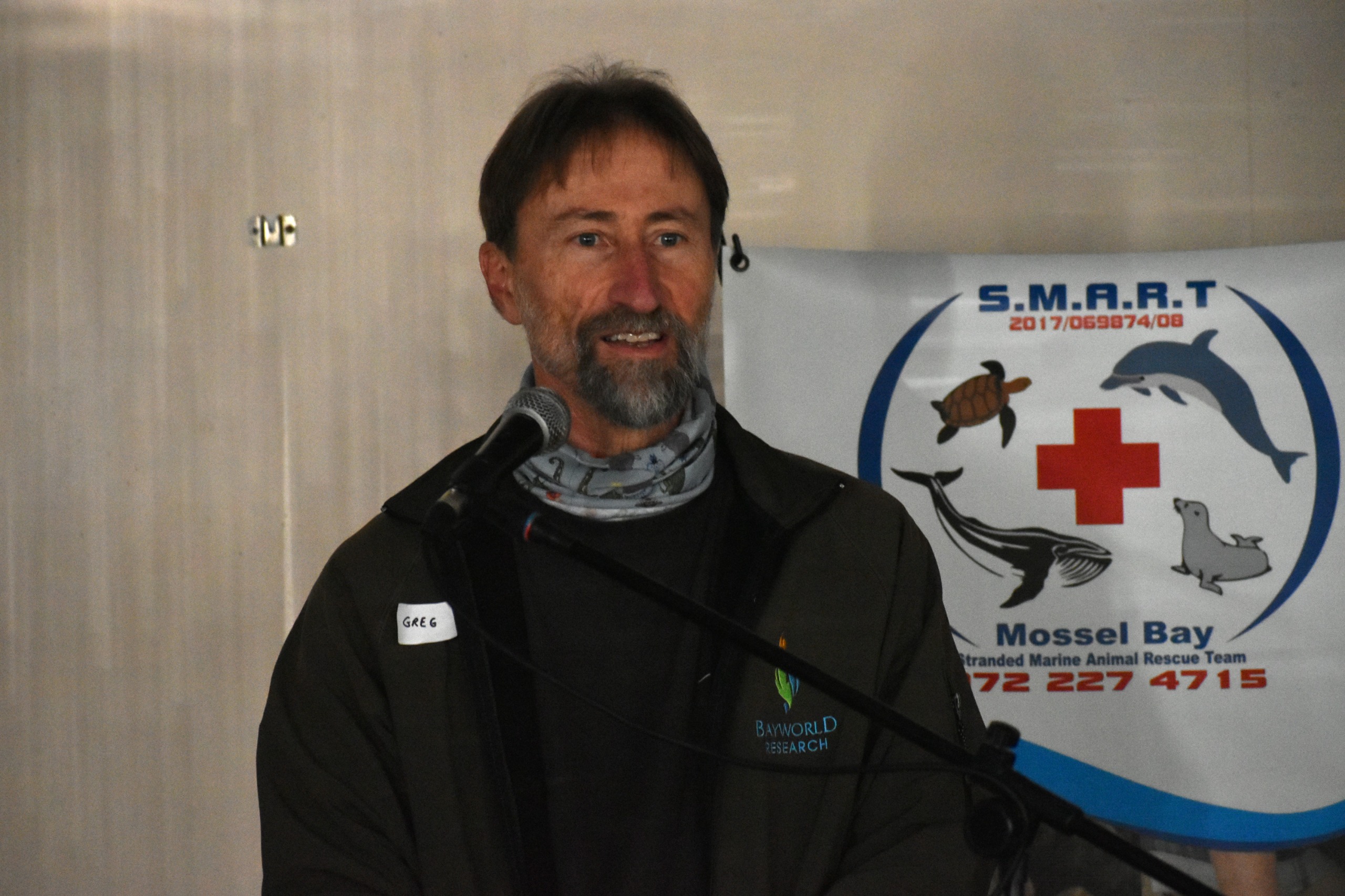 Dr Greg Hofmeyr spoke about various stranding situations and what to do. Photo: Chelsea Pieterse
Dr Greg Hofmeyr spoke about various stranding situations and what to do. Photo: Chelsea Pieterse
Hofmeyr said there are protocols in place for when strandings occur and a priority checklist that people like him and the Smart volunteers must complete when assisting a stranded animal. This includes the safety of the people on the beach near the animal, the safety of the animal, and data and sample collections of the animal.
He thanked Smart for all its work and said he was grateful for the team and what it was doing for the animals found stranded along Garden Route beaches.
Rabies in seals
Next up was Dr Frans de Graaff of the Hartenbos Animal Hospital.
De Graaff gave a presentation on rabies in Cape fur seals. He gave a detailed breakdown of possible symptoms of rabies in seals, what do if you see a seal acting abnormally and what to do if bitten by a seal suspected of rabies. This information can also be found on the Western Cape Department of Agriculture’s website, www.elsenburg.com.
De Graaff showed several videos of seals with rabies, two of which had been filmed in Mossel Bay last year.
He emphasised that if anyone sees a seal behaving strangely, they should take a video and photographs, should not approach the seal, and should report it to Smart, the state vet or the Hartenbos Animal Hospital.
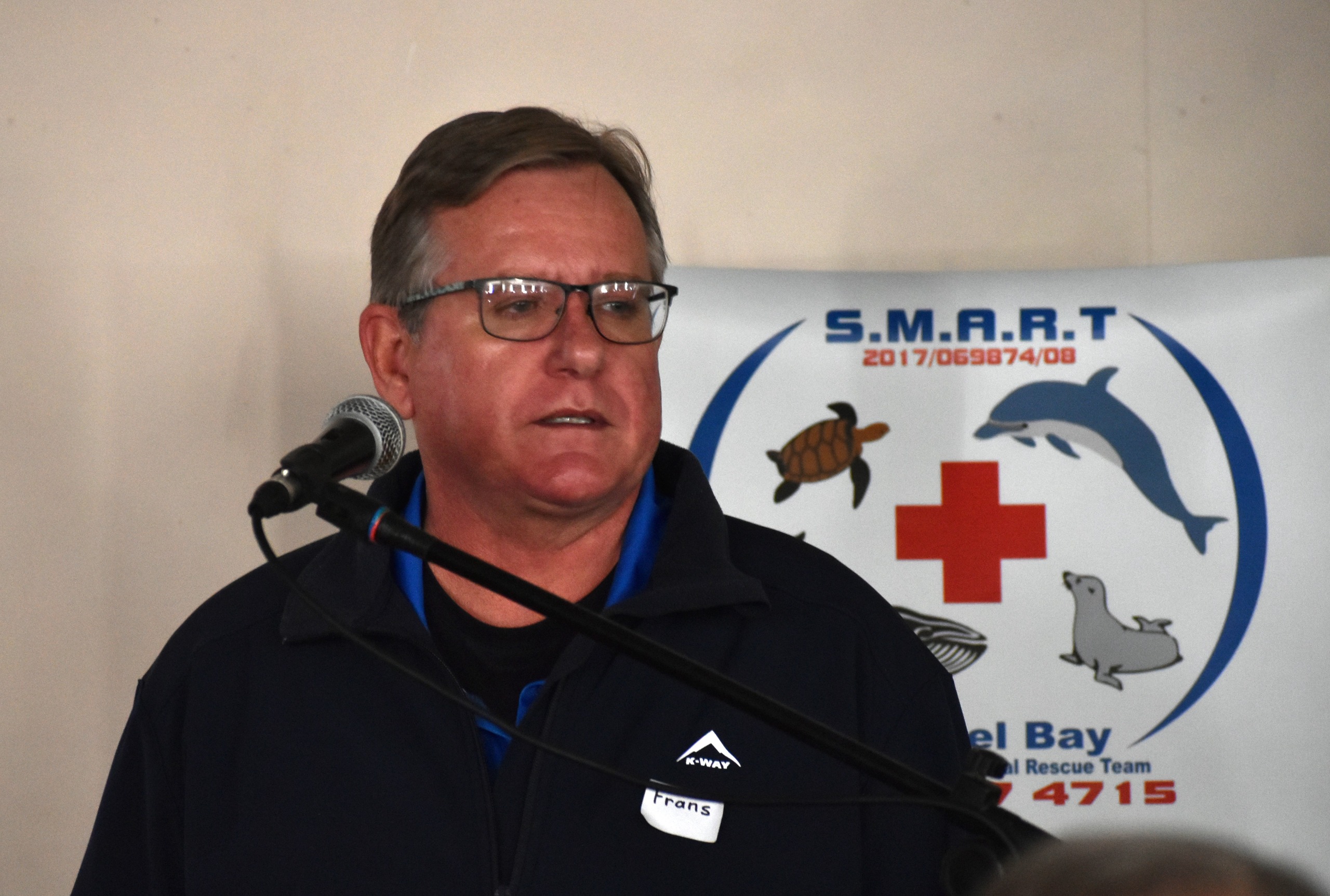 Dr Frans de Graaff spoke about rabies in Cape fur seals. Photo: Chelsea Pieterse
Dr Frans de Graaff spoke about rabies in Cape fur seals. Photo: Chelsea Pieterse
Turtle rescue
Next to speak was Sr Stefanie de Graaff, also of the Hartenbos Animal Hospital.
She spoke about the plight of turtles in today’s world. Stefanie, who recently became an ambassador for the Two Oceans Aquarium Turtle Conservation Centre, spoke about the turtles found in South Africa. Five of the world’s seven turtle species can be found in South African waters; these are the loggerhead turtle, leatherback, hawksbill, green turtle and the olive ridley turtle.
Stefanie spoke to the attendees about how pollution was affecting many of our turtle species, how to care for them once found and who to call to get them treatment and rehabilitation. To find out more about these turtles, visit www.aquarium.co.za.
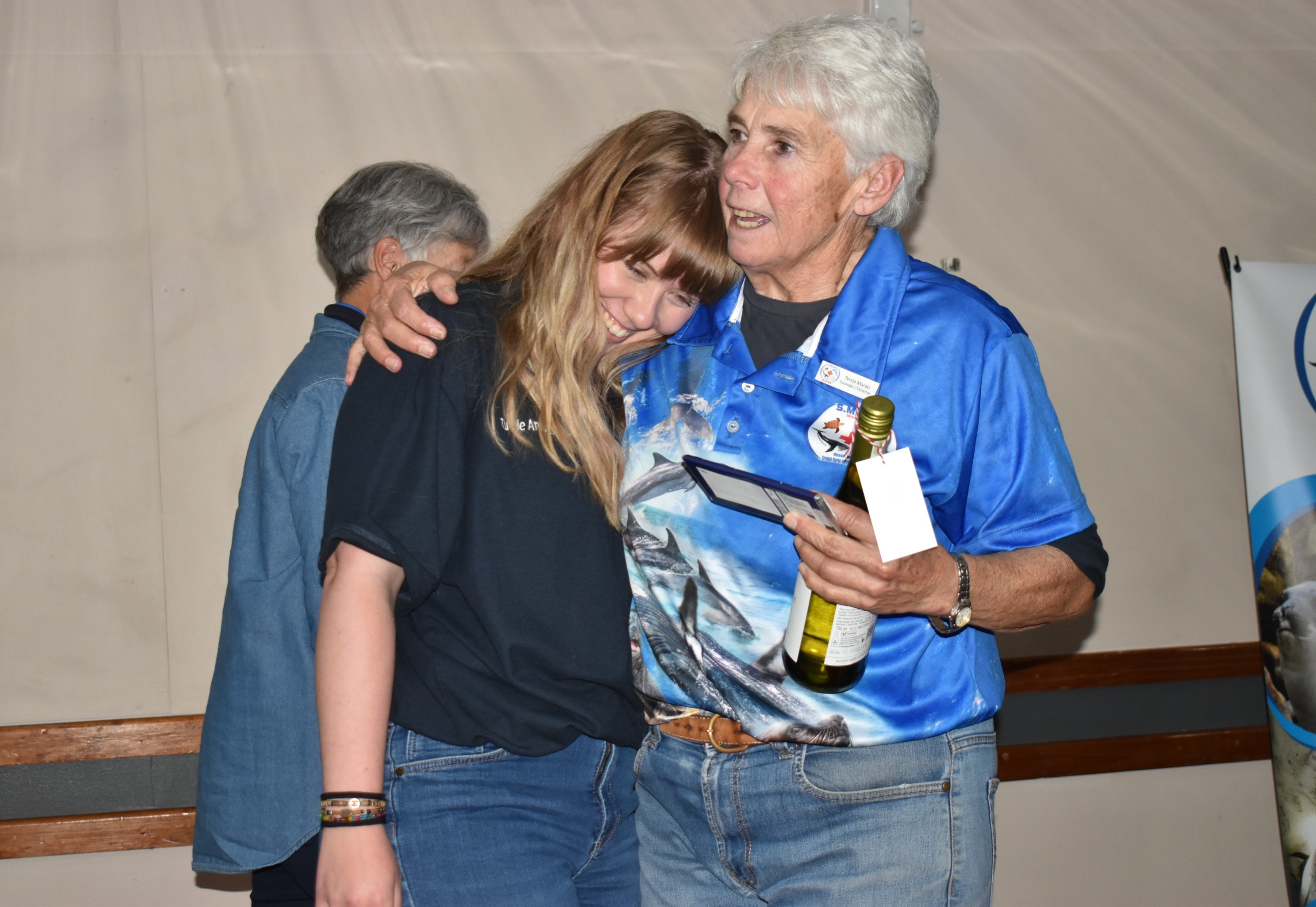 Sr Stefani de Graaff and Tersia Marais. Photo: Chelsea Pieterse
Sr Stefani de Graaff and Tersia Marais. Photo: Chelsea Pieterse
Euthanasia
The last to speak before the workshop broke for lunch and then physical training exercises was Captain Johan Ehlers, who is part of the Mossel Bay Police’s explosive division.
Ehlers, who is also a volunteer at Smart and a member of the NSRI, spoke about the various euthanasia methods for stranded marine animals, and how, while difficult, the decision to euthanise will be necessary in some cases.
He also shared some anecdotes of various stranding situations he had been involved in. He said in some cases, the only way to euthanise larger marine mammals was by bullet, or, in cases of whales, implosive devices. He spoke about which cases would require which method of euthanasia and why, and the thorough steps taken beforehand to ensure that people are not at risk during the euthanasia, and that the animals do not suffer.
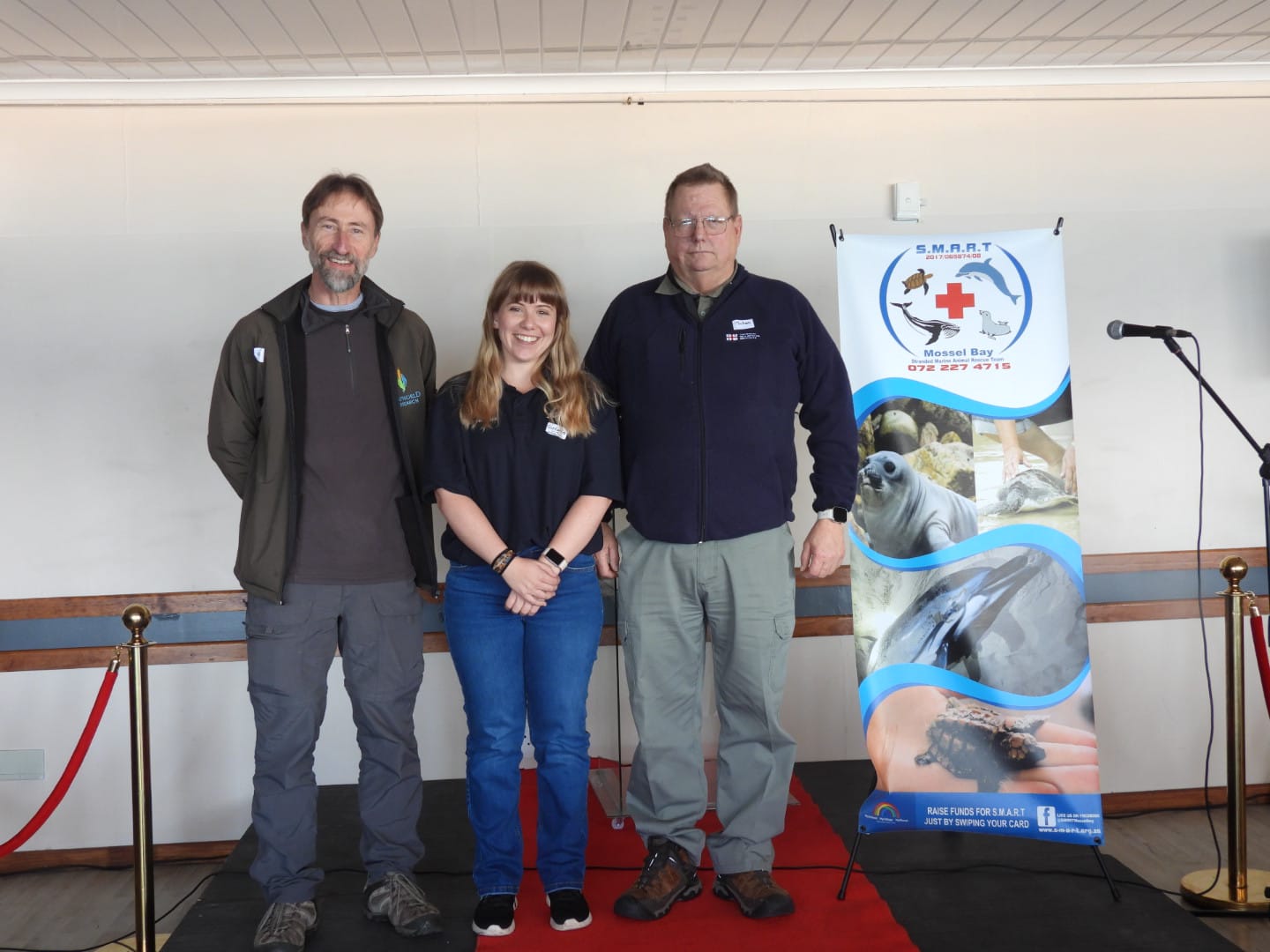 Dr Greg Hofmeyr, Sr Stefanie de Graaff and Captain Johan Ehlers. Photo: Tersia Marais
Dr Greg Hofmeyr, Sr Stefanie de Graaff and Captain Johan Ehlers. Photo: Tersia Marais
Following lunch, the attendees went down to Santos Beach where practical demonstrations and training in handling stranded animals were carried out.
Smart committee member Val Marsh said the workshop went very well and that there was a good turn-out. She thanked everyone who attended. as well as those who came to give presentations, and everyone’s tremendous support of Smart.
Important numbers
For marine animal strandings, call Smart on 072 227 4715, the Bayworld stranding hotline on 071 724 2122 or the Mossel Bay Municipality on 044 606 5000.
If you spot a seal behaving abnormally, contact Smart or the Hartenbos Animal Hospital on 044 695 1086.
If you find a seabird in distress, call the Seabird and Penguin Rehabilitation Centre on 082 364 3382.
If you find a sea turtle on the beach, do not return it to the ocean - instead call the Two Oceans turtle rescue hotline on 083 300 1663.
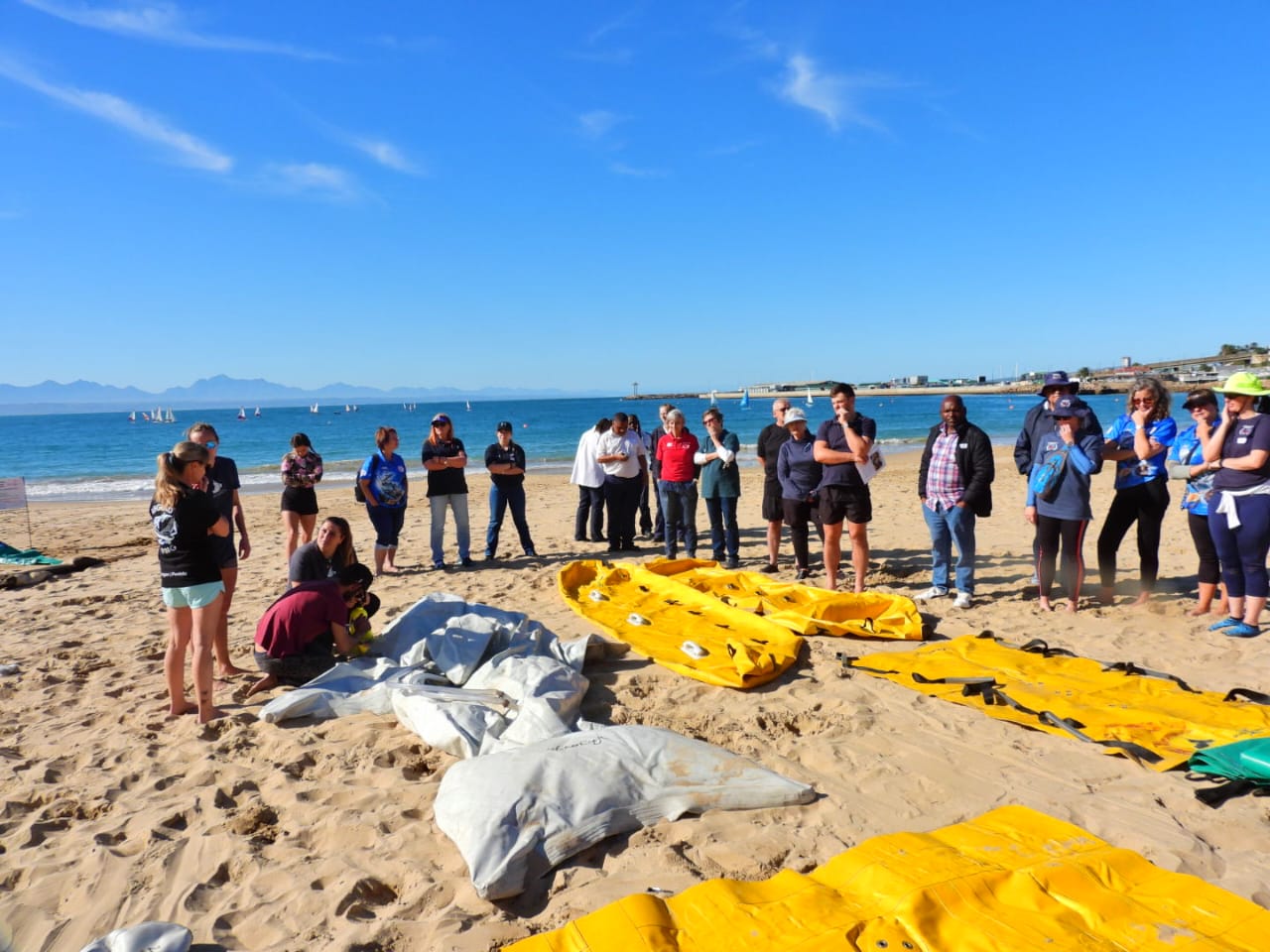 Demonstrations of how to handle stranded marine animals were carried out on Santos Beach. Photo: Tersia Marais
Demonstrations of how to handle stranded marine animals were carried out on Santos Beach. Photo: Tersia Marais
‘We bring you the latest Garden Route, Hessequa, Karoo news’















